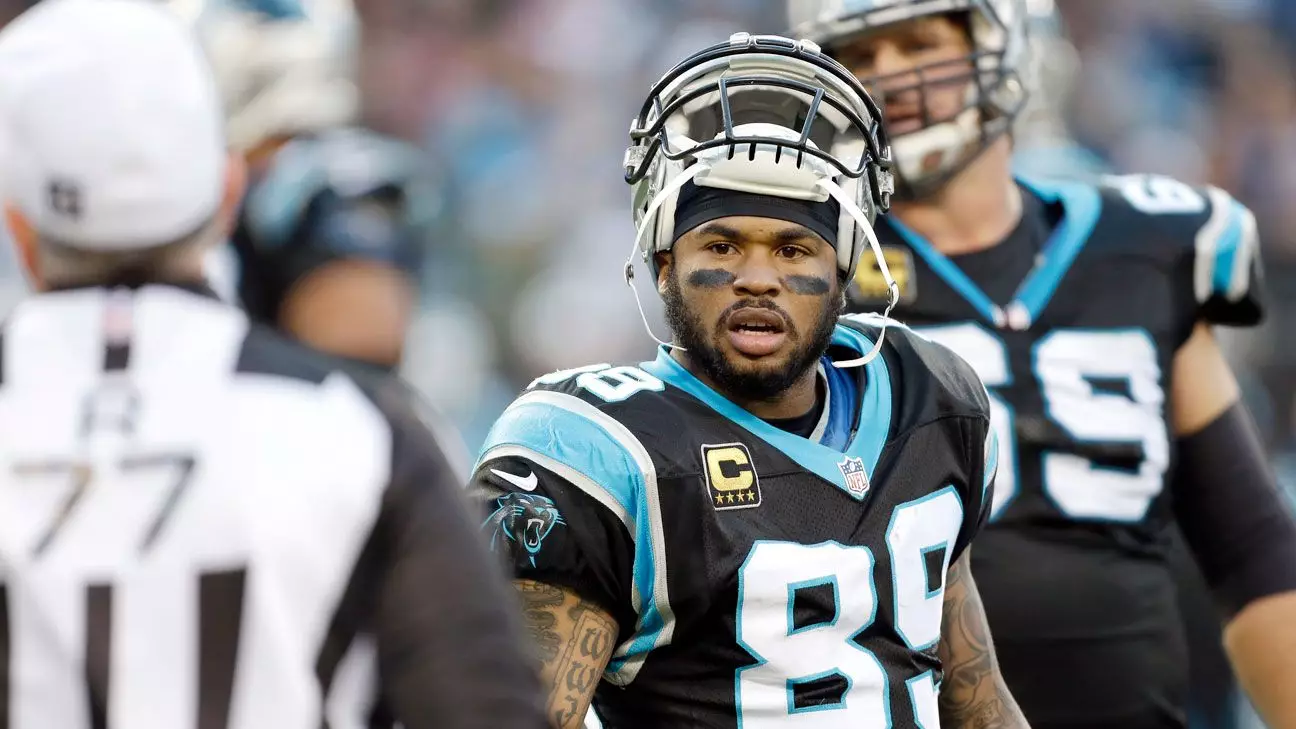In recent discussions surrounding the Carolina Panthers, comments made by former quarterback Cam Newton ignited spirited backlash, particularly from his ex-teammate Steve Smith Sr. In a podcast appearance, Newton labeled his Panthers teammates prior to his arrival as “losers,” stirring controversy and challenging the narrative of the team’s history before his tenure. This dialogue is not merely a personal dispute; it reflects the complexities of sports culture, team dynamics, and how athletes are often entwined with the narratives they create.
Steve Smith Sr., a legendary figure in Panthers lore, was quick to respond. For those unfamiliar, Smith isn’t just a former player; he is a franchise icon, standing as one of the most productive wide receivers in team history. His reaction signifies more than a disagreement; it underscores a larger conversation about respect and legacy in the sport of football. The clash between Smith and Newton serves as a lens through which fans and analysts can examine how personal experiences and overarching team narratives can clash.
When Cam Newton claimed that he walked into a “locker room of losers,” he was expressing his frustrations about a culture that he perceived as lacking preparation and seriousness. His comments about the Panthers’ poor record prior to his arrival were intended to highlight the challenges he faced. However, framing his former teammates in such a negative light fails to recognize the complexities of team dynamics and the shared responsibility among players, coaches, and management for performance outcomes.
Newton experienced unprecedented individual success during his tenure, notably winning the AP Offensive Rookie of the Year award in 2011. His passing prowess and athletic ability reshaped the team’s fortunes, culminating in a Super Bowl appearance and a league MVP title. Nevertheless, his retrospective comments can be seen as dismissive of the foundations laid by earlier players who also faced adversity. While it’s essential to acknowledge the challenges of a struggling franchise, it’s equally important to recognize that players are rarely solely responsible for a team’s culture or performance.
Steve Smith’s rebuttal highlights his deep connection to the Panthers organization and its players. His posts on social media reflect not just outrage but a profound sense of loyalty to his former teammates. By stating that calling his fellow players “losers” is disrespectful, Smith seeks to challenge Newton’s sweeping generalization and reaffirm the dignity of the individuals who fought through adversity during that dismal season.
Smith’s voice carries weight; beyond his impressive statistics and accolades, he embodies the struggle and determination that define the very spirit of football. His remarkable career, marked by perseverance and excellence, appeals to fans who cherish the deeper ethics of teamwork, respect, and shared hardship. When Smith declares, “I disliked a lot of things that happened with my time there,” it’s a reminder that he is not naive to the challenges and shortcomings within the organization but recognizes the importance of camaraderie and mutual respect among players.
This exchange between former teammates illustrates a critical lesson in sports culture: the significance of communication and mutual respect. Athletic careers, particularly in high-impact sports like football, are often fraught with tensions, ego clashes, and personal conflicts. However, players also exist within an ecosystem of collective responsibility. Acknowledging individual contributions while celebrating team efforts is paramount for fostering a healthy culture that thrives on respect.
As the dialogue between Smith and Newton continues, both players maintain their respective legacies. Smith’s steadfast loyalty to his fellow players stands in stark contrast to Newton’s critique of their past. Yet both perspectives contribute to the evolving narrative of the Panthers and their storied history, leaving fans and analysts alike to ponder the complex interplay between individual triumphs and collective struggles.
In essence, this episode serves as a reminder that in sports, as in life, the narratives crafted by our words and actions are powerful. How we choose to communicate about our past experiences can shape perceptions and influence legacies for years to come. The dialogue between Smith and Newton may be contentious, but it reflects the passion and depth of fidelity that sports often inspire within their players.

